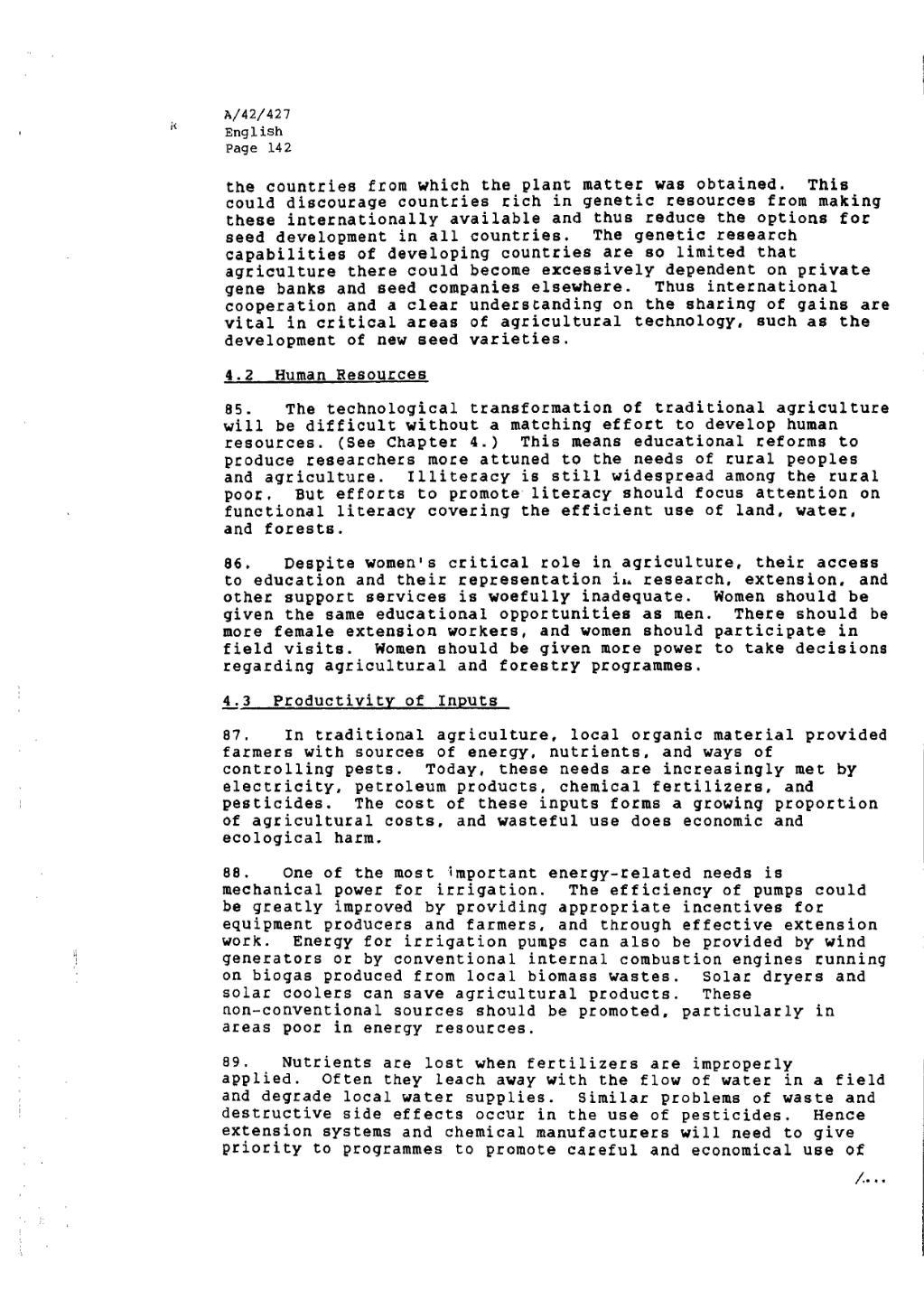A/42/427
English
Page 142
the countries from which the plant matter was obtained. This could discourage countries rich in genetic resources from making these internationally available and thus reduce the options for seed development in all countries. The genetic research capabilities of developing countries are so limited that agriculture there could become excessively dependent on private gene banks and seed companies elsewhere. Thus international cooperation and a clear understanding on the sharing of gains are vital in critical areas of agricultural technology, such as the development of new seed varieties.
4.2 Human Resources
85. The technological transformation of traditional agriculture will be difficult without a matching effort to develop human resources. (See Chapter 4.) This means educational reforms to produce researchers more attuned to the needs of rural peoples and agriculture. Illiteracy is still widespread among the rural poor. But efforts to promote literacy should focus attention on functional literacy covering the efficient use of land, water, and forests.
86. Despite women's critical role in agriculture, their access to education and their representation in research, extension, and other support services is woefully inadequate. Women should be given the same educational opportunities as men. There should be more female extension workers, and women should participate in field visits. Women should be given more power to take decisions regarding agricultural and forestry programmes.
4.3 Productivity of Inputs
87. In traditional agriculture, local organic material provided farmers with sources of energy, nutrients, and ways of controlling pests. Today, these needs are increasingly met by electricity, petroleum products, chemical fertilizers, and pesticides. The cost of these inputs forms a growing proportion of agricultural costs, and wasteful use does economic and ecological harm.
88. One of the most important energy-related needs is mechanical power or irrigation. The efficiency of pumps could be greatly improved by providing appropriate incentives for equipment producers and farmers, and through effective extension work. Energy for irrigation pumps can also be provided by wind generators or by conventional internal combustion engines running on biogas produced from local biomass wastes. Solar dryers and solar coolers can save agricultural products. These non-conventional sources should be promoted, particularly in areas poor in energy resources.
89. Nutrients are lost when fertilizers are improperly applied. Often they leach away with the flow of water in a field and degrade local water supplies. Similar problems of waste and destructive side effects occur in the use of pesticides, Hence extension systems and chemical manufacturers will need to give priority to programmes to promote careful and economical use of
/…
